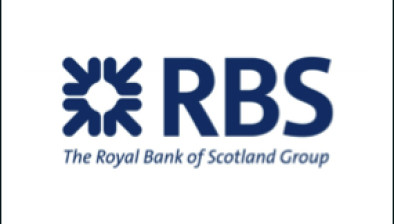RBS: ‘Positive sign’ for Scottish labour market as permanent placements growth accelerates in January

Sebastian Burnside
The Scottish labour market benefited from a rise in permanent staff appointments continued during January, according to a new Royal Bank of Scotland (RBS) report.
The increase was the fastest in the current three-month sequence of expansion and solid overall, according to the latest RBS Report on Jobs.
Meanwhile, temp billings fell for the second month running, with the pace of decline the sharpest since October 2016. At the same time, candidate availability continued to deteriorate markedly, and permanent starters pay rose at a much quicker pace.
Permanent staff appointments continued to rise during January, with the latest uptick the sharpest seen for eight months and solid overall.
The trend in Scotland was mirrored at the UK level, where permanent placements also rose at a faster rate than December. Nonetheless, the increase in Scotland outpaced that seen across the UK as a whole.
At the same time, temporary staff billings declined for the second month running in January, marking the first back-to-back fall in over three years. Moreover, the decline was the fastest since October 2016 and quicker than that recorded at the national level.
As has been the case in each month since October 2010, recruitment agencies across Scotland signalled an increase in the number of permanent vacancies during January. The rise was the sharpest since last August and solid overall. The uptick in Scotland was also broadly similar to figures for the UK as a whole.
Demand for temporary staff also increased in January, extending the current sequence of growth to over ten years. Despite softening from the previous survey period, the uptick was marked overall and sharper than the rise reported at the aggregate UK level.
Demand and supply imbalances continued to push up pay in January, as salaries awarded to permanent new starters increased at the quickest rate for three months. That said, the rate of salary inflation remained subdued in the context of historical data.
Wages for temporary workers rose further during January, although the rate of inflation was the softest since October 2016 and below the series average. Moreover, the increase reported for Scotland was softer than that seen across the UK as a whole.
January data signalled a faster deterioration in the supply of labour in Scotland. Permanent staff availability fell markedly, with the decline in Scotland outstripping the fall recorded at the UK level.
Meanwhile, temp staff numbers also fell during January. The reduction quickened from December and was sharp overall, outpacing that seen at the UK level for the eighth consecutive month.
Sebastian Burnside, chief economist at Royal Bank of Scotland, said: “January data signalled a further increase in permanent staff appointments in Scotland, providing a positive sign for the Scottish labour market at the start of 2020.
“Moreover, the latest increase was the sharpest for eight months and solid overall, with recruitment firms indicating that demand for staff had improved following December’s general election.
“Firms’ preference towards short-term staff appears to be fading, however, as temp billings declined for the second month in a row, and at the quickest pace since October 2016.
“However, tightness in the Scottish labour market remained apparent as candidate availability continued to deteriorate, with the declines in Scotland outstripping the falls recorded at the UK level for both permanent and temporary staff.”










